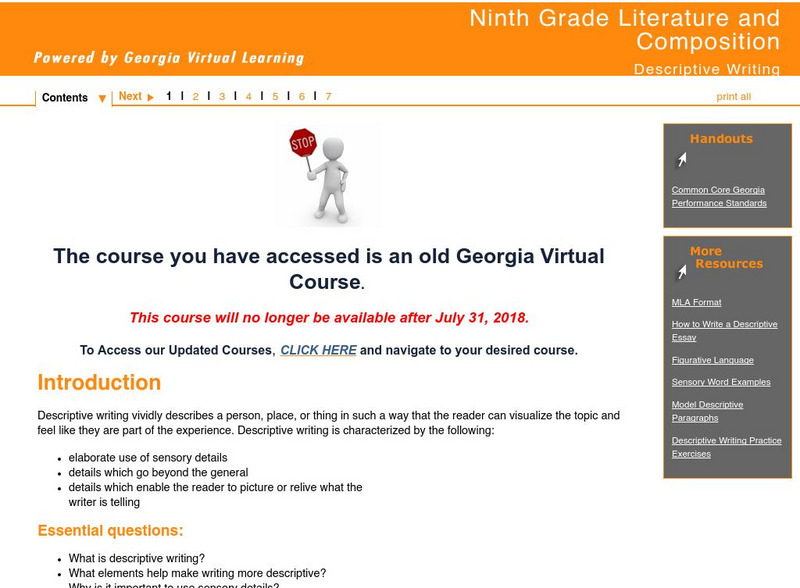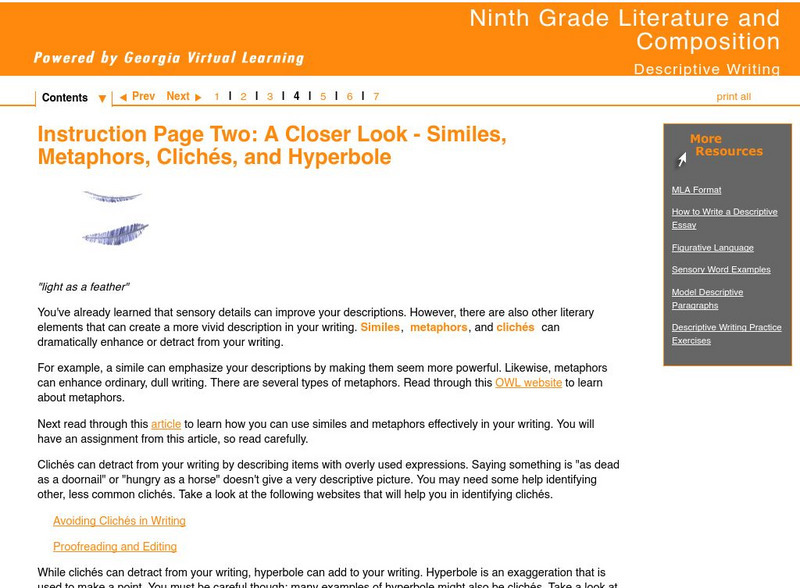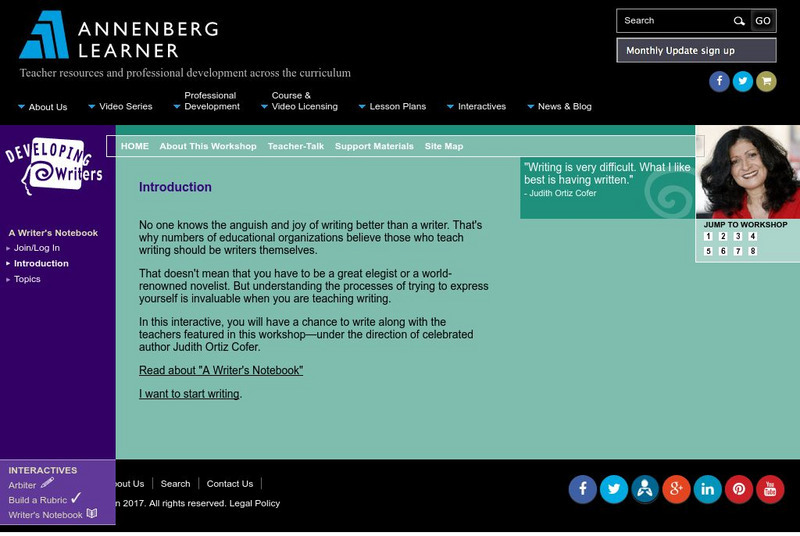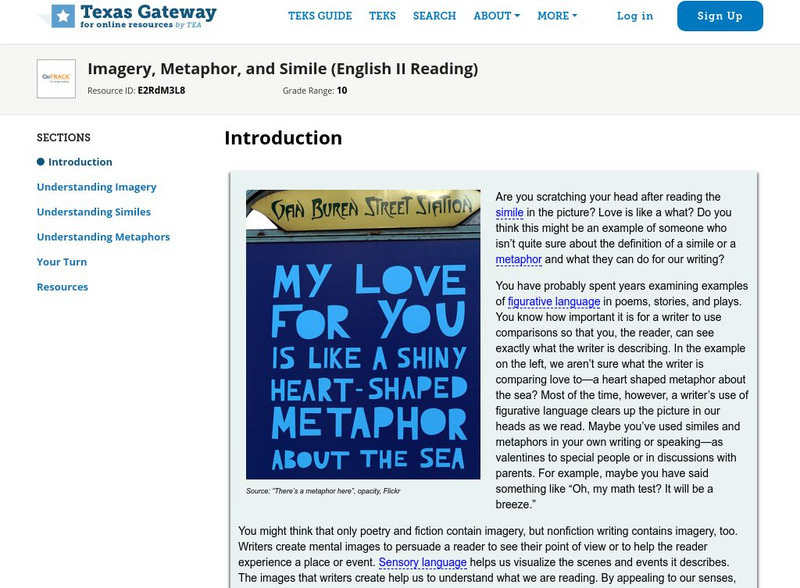Georgia Department of Education
Ga Virtual Learning: Ninth Grade Literature and Composition: Descriptive Writing
This lesson focuses on descriptive writing including discussing what it is and the chararacteristics. It provides links to the web articles: "How to Write a Descriptive Essay," "5 Model Descriptive Paragraphs," "MLA Formatting and Style...
Georgia Department of Education
Ga Virtual Learning: Descriptive Writing: Similes, Metaphors, Cliches, Hyperbole
This lesson focuses on figurative language used in descriptive writing including similes, metaphors, cliches, hyperbole. It offers multiple links to websites pertaining to figurative language in descriptive and creative writing; an...
Writing Fix
Writing Fix: The Sum of Its Parts
Inspired by Julianna's understanding (from the novel Flipped by Wendelin Van Draanen) that "A painting is more than the sum of its parts," students will describe a memorable place that evokes a certain feeling or emotion. Students will...
Sophia Learning
Sophia: Writing Narratives
Notes, a PowerPoint presentation, two videos, a song, an exercise, and a game help students to understand how to write a narrative. Elements of a narrative as well as the use of figurative language and sensory images are introduced and...
Annenberg Foundation
Annenberg Learner: A Writers' Notebook
Virtually participate in a workshop of four high school teachers led by a renowned author. There are eight topics including "Hiding and Revealing with Language," "Using Sensory Description," and "Writing a Picture of Me".
Texas Education Agency
Texas Gateway: Literary Text: Imagery, Metaphor, and Simile
Writers use sensory imagery ("smelled the salty air"), similes ("like a strong man playing tug-of-war"), and metaphors ("the waves roaring in my ears") to capture the reader's imagination. In this lesson, you will learn how to identify...





